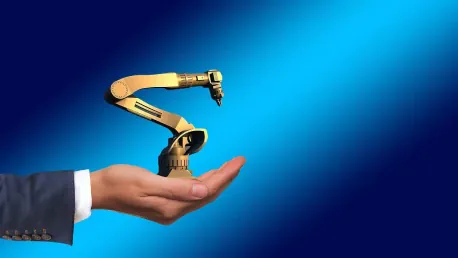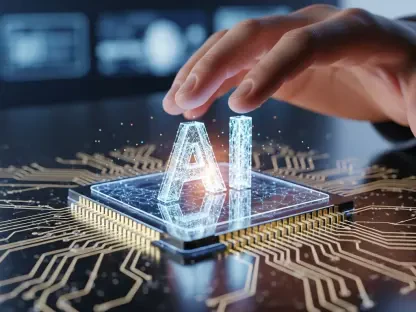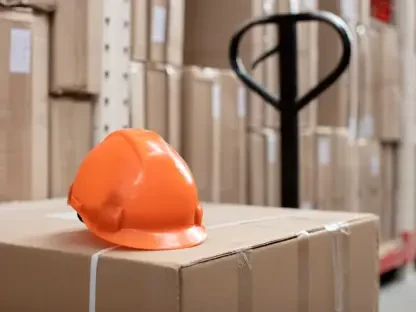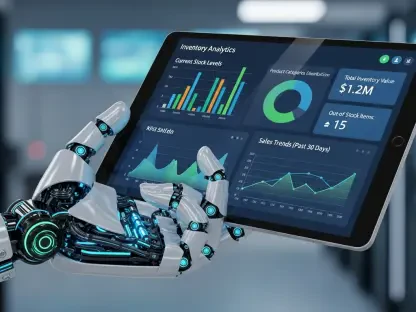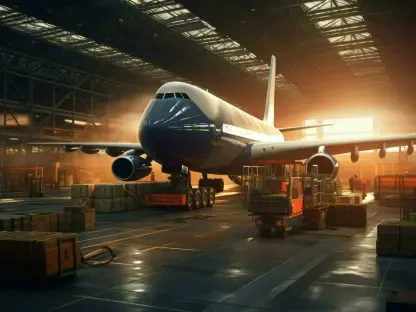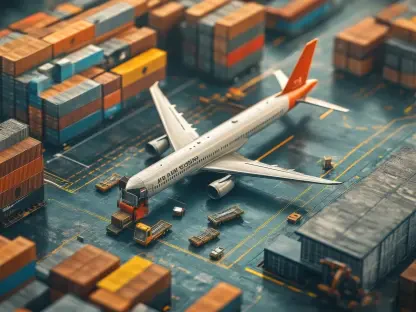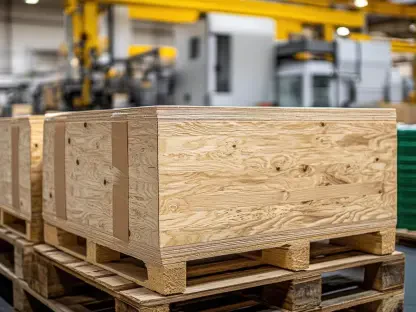The fascination with robotics has a long history, originating from ancient times and intensifying with the creation of the term “robot” by Karel Čapek a century ago. Fast forward to today, robots have evolved from science fiction marvels to practical tools deeply integrated into various sectors. This article highlights ten pioneering European startups transforming industries with their innovative robotic solutions, showcasing how these technologies enhance efficiency, productivity, and sustainability.
The Rise of Robotics in Modern Industry
From Ancient Fascination to Cutting-Edge Technology
Throughout history, the concept of automated machines has captured human imagination. In the modern era, this fascination has translated into tangible innovations that impact everyday life and work. The deployment of advanced robotics in contemporary settings is not just about creating sophisticated machines but about revolutionizing operations across diverse sectors, including agriculture, healthcare, construction, and defense.
Underscoring this point, techniques that were once relegated to the pages of science fiction novels are finding real-world applications. Robotic technology has progressed from rudimentary machines to highly advanced systems capable of performing tasks that are both mundane and complex. This technological evolution has paved the way for increased productivity, higher efficiency, and enhanced precision in numerous industries. Companies have moved beyond merely experimenting with robotic technologies to leveraging them as essential components of their operational strategies.
Innovations Redefining Industry Standards
European startups are at the forefront of this technological wave, pushing boundaries with their groundbreaking robotic solutions. These companies illustrate how the integration of robotics can generate significant improvements in efficiency and productivity across various industries. Present-day robotics are not just about machinery but about integrating complex algorithms, artificial intelligence, and machine learning to create intelligent systems capable of adapting to different scenarios and environments.
Startups in Europe, in particular, are pioneering innovations that transcend traditional industrial applications, breaking new grounds in fields as varied as healthcare, agriculture, and even the food service industry. Their approaches emphasize the need for adaptability, sustainability, and ethical considerations, reflecting a broader societal shift towards responsible and smart innovation. By fostering environments where robotics can thrive, these startups are showing how versatile and impactful robotic solutions can be when intelligently applied to industry-specific challenges.
Spotlight on Leading European Innovators
ARX Robotics: Autonomous Defense Solutions
Transforming Defense Technology
ARX Robotics, based in Germany, is revolutionizing the defense sector with its autonomous unmanned systems and sensor technologies. These advanced robots assist NATO armies and civilian first responders, navigating critical and challenging environments with precision and reliability. With €10.15 million in funding, ARX Robotics is setting new standards for defense technology, making operations safer and more efficient.
ARX Robotics’ systems can perform tasks previously deemed too risky or impossible for humans, such as monitoring hostile territories, conducting surveillance, and even participating in search and rescue missions. The autonomous nature of these robots allows them to operate with minimal human intervention, significantly reducing the risk to personnel in dangerous situations. By integrating sensory technology, these robots can better assess and respond to their surroundings, providing real-time data that is crucial for tactical decision-making. This reflects a significant leap forward in defense capabilities, bringing higher efficiency and safety to both military and civilian applications.
Impact on Civilian and Military Applications
The company’s innovations are not limited to military use; civilian first responders benefit from these robust solutions. The ability to operate autonomously in hazardous conditions makes ARX Robotics’ products invaluable in emergency response scenarios, showcasing the wide-ranging applications and impact of their technology. For instance, these robots can be deployed in disaster-hit areas to locate and assist in rescuing trapped individuals, navigating through debris and other obstructions that might hinder human responders.
Additionally, ARX Robotics’ systems offer versatile applications such as firefighting, hazardous material handling, and even deep-sea or arctic explorations. Their capability to endure and function in extreme conditions without endangering human lives expands the scope of missions that can be undertaken. Civilian applications of ARX technologies highlight the transformative power of robotics beyond traditional defense roles, marking a significant advancement in emergency response and public safety operations.
Circus Group: Revolutionizing the Food Service Industry
AI-Driven Kitchen Ecosystems
Circus Group, also from Germany, is bringing AI to the kitchen with its autonomous food production systems. By generating recipes and handling food preparation, their technology ensures high efficiency, quality, and hygiene in food service operations. With €26.9 million in funding, this startup is set to redefine the food service industry.
At the core of Circus Group’s technology is the fusion of AI algorithms with robotics to create fully autonomous kitchen ecosystems. These systems can manage the entire process of food preparation—from ingredient selection and recipe generation to cooking and plating—without human intervention. This leap in technology addresses several key challenges faced by the food service industry, such as labor shortages, consistency in food quality, and maintaining high hygiene standards. By leveraging AI, Circus Group’s solutions also offer unprecedented levels of customization and creativity in culinary operations.
Enhancing Efficiency and Quality
The incorporation of AI-driven robotics not only streamlines kitchen operations but also addresses labor shortages and consistency issues in food production. Circus Group’s innovative solutions illustrate the growing trend of integrating robotics into everyday tasks to improve service quality and operational efficiency. For example, their systems ensure that dishes are prepared with consistent quality, minimizing human errors that typically arise from manual cooking processes. Furthermore, the robotic systems are designed to maintain cleanliness and hygiene, significantly reducing the risk of contamination.
By automating repetitive and time-consuming tasks, Circus Group allows human chefs and staff to focus on more creative and strategic aspects of food service. This enables restaurants and food service businesses to offer more diverse and high-quality menus without increasing labor costs. Additionally, AI-driven data analytics can help in understanding customer preferences and adapting food offerings accordingly, thereby enhancing overall dining experiences.
E-TERRY: Sustainable Agricultural Robotics
Driving Sustainable Farming Practices
E-TERRY, another pioneering German startup, develops autonomous agricultural robots designed for sustainable large-scale farming. Their technology focuses on precision farming and weed removal, supporting farmers in the transition to environmentally-friendly practices. With €1.2 million in funding, E-TERRY is making a significant impact on the agriculture sector.
E-TERRY’s robots are designed to perform tasks such as planting, weed removal, and crop monitoring with high precision. These robots leverage advanced sensors and AI to analyze soil conditions, identify optimal planting areas, and efficiently manage resources like water and fertilizer. This level of precision ensures that crops are grown under optimal conditions, reducing waste and increasing yields. Moreover, E-TERRY’s focus on weed removal eliminates the need for harmful chemicals, promoting healthier and more sustainable farming practices.
Precision and Efficiency in Agriculture
These robots enable more precise farming techniques, reducing the need for harmful chemicals and optimizing resource use. E-TERRY’s innovations demonstrate how robotics can contribute to sustainable development, promoting eco-friendly farming practices that benefit both producers and the environment. The use of autonomous robots allows for continuous monitoring of crop health, soil conditions, and pest activity, providing farmers with real-time data to make informed decisions. This capability not only improves crop yields but also reduces the environmental footprint of farming activities.
By automating labor-intensive tasks, E-TERRY helps address the problem of labor shortages in the agricultural sector. This is particularly significant in large-scale farming operations where manual labor is both expensive and scarce. Additionally, the data collected by these robots can inform better agricultural practices and strategies, resulting in long-term benefits for both the environment and agricultural productivity.
Enchanted Tools: Ethical Innovation in Healthcare and Beyond
Mirokaï Robots for Multisector Applications
France’s Enchanted Tools develops Mirokaï robots, compact and agile machines designed for healthcare, hospitality, and retail applications. These robots handle tasks such as logistics and customer service, integrating interactive expressions to enhance user experience. With €15 million in funding, Enchanted Tools merges advanced technology with ethical considerations, setting a new standard for robotic innovation.
Enchanted Tools’ Mirokaï robots are designed to be both functional and user-friendly, incorporating interactive features that make them more approachable in human-centric environments. For example, in healthcare settings, these robots can assist in patient transport, medication delivery, and administrative tasks, allowing healthcare professionals to focus more on patient care. In hospitality and retail sectors, Mirokaï robots can manage customer inquiries, guide visitors, and handle logistical tasks, improving service efficiency and customer satisfaction.
Bridging Technology and Ethical Responsibility
Enchanted Tools emphasizes the importance of ethical innovation, ensuring their technologies positively impact human experiences. Their approach highlights a crucial trend in the robotics sector: balancing technological advancement with ethical responsibility to create solutions that benefit society as a whole. By embedding ethical considerations into their design and operational framework, Enchanted Tools ensures that their robots enhance human experiences without compromising on ethical standards.
This ethical focus is particularly relevant in sectors like healthcare and hospitality, where human well-being is paramount. Enchanted Tools’ commitment to responsible innovation also extends to issues like data privacy and security, ensuring that the information collected by their robots is handled with utmost confidentiality and integrity. This holistic approach underscores the potential for robotics to not just advance technological boundaries but also to contribute positively to societal values and norms.
Advancements Across Diverse Sectors
Keybotic: Automating Industrial Inspections
Four-Legged Autonomous Robot
Spain’s Keybotic introduces Keyper, a four-legged autonomous robot designed for industrial inspections. These robots navigate complex terrains and conduct environmental monitoring, improving safety and efficiency in industrial settings. With €3 million in funding, Keybotic is transforming the way industries manage inspections and maintenance.
Keyper uses advanced sensors and AI to navigate hostile and complicated environments, making it an ideal solution for industrial settings that are hazardous for human workers. The robot can perform a range of tasks such as inspecting pipelines, monitoring environmental conditions, and analyzing structural integrity. This reduces the need for human workers to enter potentially dangerous situations, thereby improving overall safety. Keyper is equipped with data collection tools that enable real-time monitoring and reporting, offering comprehensive and precise data that human inspection methods cannot match.
Enhancing Safety and Efficiency
The autonomous nature of Keyper reduces human exposure to dangerous environments, ensuring safer inspection processes. Keybotic’s innovations underscore the potential of robotics to enhance safety and operational efficiency across various industrial sectors. By automating routine inspections, industries can achieve higher accuracy and consistency, ensuring that any issues are detected and addressed promptly.
Additionally, Keyper’s capabilities reduce downtime in industrial operations. Regular and thorough inspections help in early detection of potential problems, minimizing disruptions caused by unexpected breakdowns. This proactive approach not only saves costs associated with repairs and maintenance but also extends the lifespan of industrial equipment. Keybotic’s autonomous solutions demonstrate how integrating robotics into industrial processes can lead to substantial improvements in both operational safety and efficiency.
Moon Surgical: Precision in Medical Technology
The Maestro System for Laparoscopy
France-based Moon Surgical has developed the Maestro System, which assists in laparoscopic surgeries. This technology enhances surgical precision and adaptability, making minimally invasive procedures more accessible. With a substantial funding of €83.3 million, Moon Surgical is revolutionizing medical technology.
The Maestro System leverages robotic precision to assist surgeons in performing complex laparoscopic procedures. By providing enhanced dexterity and control, the system enables surgeons to perform delicate operations with greater accuracy. This not only improves patient outcomes but also reduces the risks associated with surgical errors. The Maestro System is designed to integrate seamlessly with existing surgical workflows, making it an adaptable tool for various medical procedures. Its advanced features ensure that even complex surgeries can be performed with minimal invasiveness, reducing patient recovery times and hospital stays.
Accessibility and Innovation in Surgery
The fascination with robotics has roots reaching back to ancient times, gaining notable momentum when Karel Čapek coined the term “robot” a century ago. Over the years, robots have made the leap from the realm of science fiction to becoming indispensable tools in a wide array of industries. This evolution has seen robots shift from mere theoretical constructs to practical applications that are central to modern operations.
In the contemporary landscape, robotics are not just confined to automating repetitive tasks; they are pivotal in enhancing efficiency, boosting productivity, and contributing to sustainability efforts across diverse sectors. From manufacturing and healthcare to agriculture and logistics, robotic solutions are driving forward impressive advancements.
This article showcases ten groundbreaking European startups that are at the forefront of this robotic revolution. These companies are developing cutting-edge technologies that are transforming how industries operate. They are leveraging robotics to solve complex problems, streamline processes, and create more sustainable and efficient systems. Each startup highlighted exemplifies the innovative spirit and technical prowess that are pushing the boundaries of what robots can achieve today.
By exploring these pioneering efforts, we gain a glimpse into the future of robotics and its potential to further integrate into and revolutionize everyday industries, ultimately changing the way we live and work.
